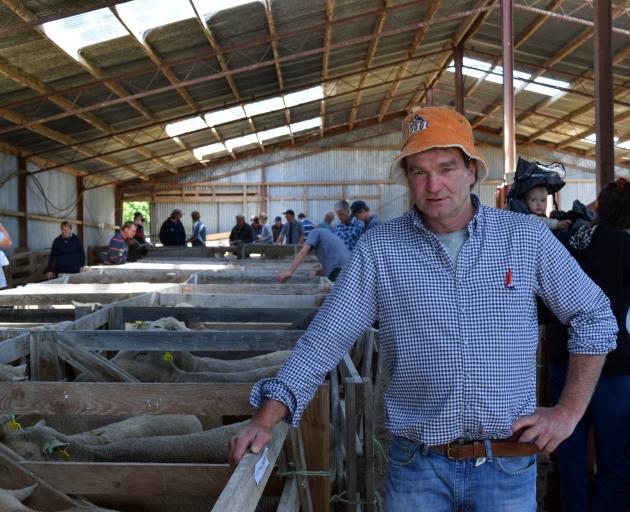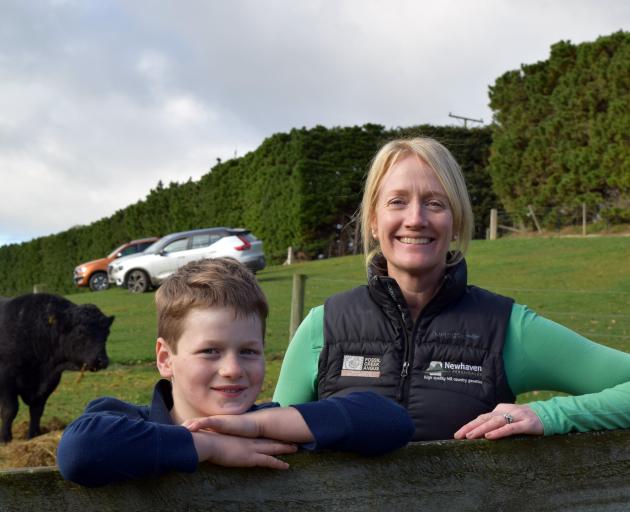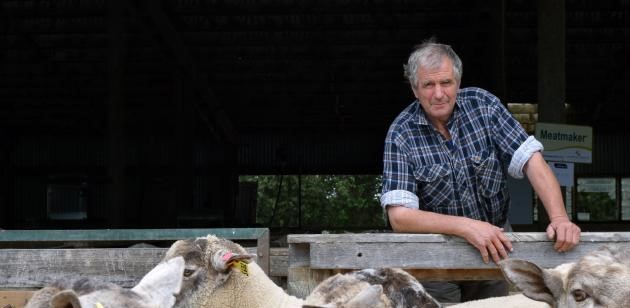Sheep farmers feeling the pinch are keeping on old rams rather than replacing them this season, southern breeders say.

Merrydowns Romney and Southdown Stud owner Blair Robertson at his 15th annual on-farm ram sale in Waikoikoi last week.
However, farmers buying rams this season continue to invest in genetics proven to perform.
Merrydowns Romney and Southdown Stud owner Blair Robertson said despite offering his best ever line of rams, prices were slightly down at his 15th annual on-farm ram sale in Waikoikoi last week.
“It didn’t go too bad.”
He had a full clearance of the more than 200 rams across the two breeds on offer, selling for an average of $1450.
The highest price paid for a Southdown ram was $4000 and a Romney ram $3800.
For both breeds, top and average prices were down on last year.
“A little bit back.”
He believed reasons for the price drop included the state of the economy and farm budgets being cut.
“Everyone is buying bare minimum at the moment, whether it be fertiliser, grass seed or rams.”
No matter what the economy was doing, he never “skimped” when buying rams, bulls and fertiliser.
“They are the economic drivers of farm profitability.”
Another reason for prices being down at his ram sale could be weaker prices for wool and lamb and mutton schedules.
Some of his clients bought fewer rams this season because they had kept on rams they would have otherwise retired.
“They buy a couple less and use the old boys.”
About 60 ram buyers registered at the sale, and more were active on Bidr, he said.
He was “stoked” many of his clients were repeat buyers.
Rams were sold to farmers between Bluff and Wairoa, he said.
“It was still a good sound sale and people got value for money and were real happy with their rams.”
Wharetoa Genetics co-owner Garth Shaw will offer 300 rams for sale on his farm in South Otago today.
He expected farmers to buy fewer rams this season, as many “try and make do with what they’ve got.”
“That’s all right — if they are still doing the job, what’s the point of replacing them?”
He expected demand would be strong for the rams with genetics that were proven to perform.
Any money spent on genetics should be considered an investment in the future rather than an annual cost, he said.
“The progeny of those rams will be around for nine years.”
One way a farmer could combat weaker schedule prices was to use genetics to put more weight on lambs so they could be sent away heavier.
“A farmer is in control of that destiny, 100%. He has no say on interest rates or the price of anything, but he has control of the genetic direction of his flock.”
The only commodity sheep farmers would make money from this season was lamb, he said.
A lamb being sent away at 17kg was an “absolute crime” when it could be kept on to put weight on for up to a month.
“There’s heaps of people doing it because they are in fear of the schedule going down. It might go down, but the arse is not going to drop out of it like [in] some years.”
Farmers need to look for opportunities to improve their flock to boost future production.
“Now is the time to implement some changes so in 15 years time you’ve got a flock which is worthy of the day.”

Private ram sales have been positive despite tough economic times for sheep farmers, Newhaven Perendales co-owner Jane Smith says.
Newhaven Perendales co-owner Jane Smith said orders for private sale of rams from their stud near Five Forks in North Otago had been positive this season.
Mrs Smith said when times were tough financially, a farmer focused more on making sure every sheep on their farm was performing.
“You should pay for the best genetics you can afford because you’ll get that return on investment.”

